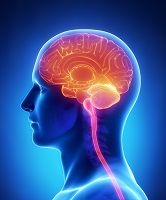Article
Neurosurgeons Find Diagnostic Use for Music Videos
Author(s):
Tracking patients' eye movements as they watched videos including Shakira's "Waka-Waka" 2010 FIFA World Cup tribute proved to be a good way to detect certain cranial nerve palsies, a team from New York University School of Medicine reports.

Tracking patients’ eye movements as they watched music videos proved to be a good way to detect certain cranial nerve palsies, a team from New York University School of Medicine reports.
Writing in the Journal of Neurosurgery Uzma Samadani, MD, PhD, and colleagues described their methods. They had patients and controls follow a moving aperture on a laptop screen as it traveled around the perimeter of the video. They then compared the speeds and patterns of the eye movements of controls with those of patients with pathological conditions of the third and sixth cranial nerves. In each group, the researchers measured the ratio of subjects' horizontal to vertical eye movements.
The team used 200 seconds of data from each 220 second test.
While the tracking patterns of the healthy controls took the form of orderly rectangles, since their horizontal eye movements tended to equal vertical movements, those of 12 patients with known cranial nerve conditions were random, often chaotic.
Many of those patients had ailments that required surgery, such as a patient with a deep brain abscess.
Post-surgery, these patients were given the eye-tracking test again, and this time their patterns as they followed the aperture moving around the video were much neater, mostly clearly defined rectangles.
Samadani and colleagues said the test could be used to detect conditions like traumatic brain injury, hydrocephalus due to failed shunts, and other diseases that impact cranial nerve function. “This represents the first report in the literature of the use of eye tracking to assess physiological functioning of the cranial nerves,” she concluded in the journal article.
“This may potentially be performed remotely in the absence of a trained examiner,” the authors wrote.
The subjects were allowed to adjust the volume on the videos to their own liking.
The videos including Shakira’s “Waka-Waka” the official song of the 2010 FIFA World Cup, "Hakuna Matata" from the Lion King, and Michael Jackson's "Man in the Mirror."
Samadani’s work is supported in part by the US Department of Veterans Affairs. She is chief of neurosurgery at the VA’s New York Harbor Health Care System and co-director of the Steven & Alexandra Cohen Veterans Center for the Study of Post-Traumatic Stress and Traumatic Brain Injury at NYU Langone Medical Center.




